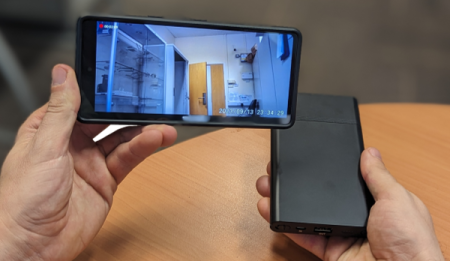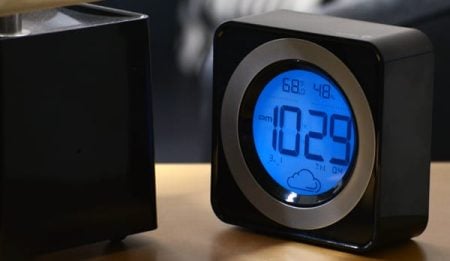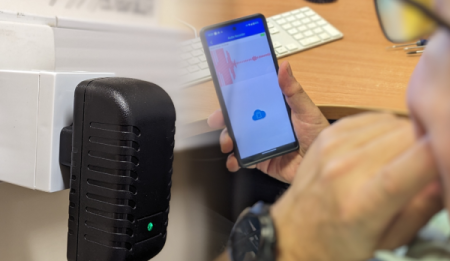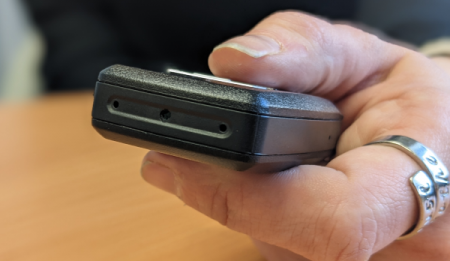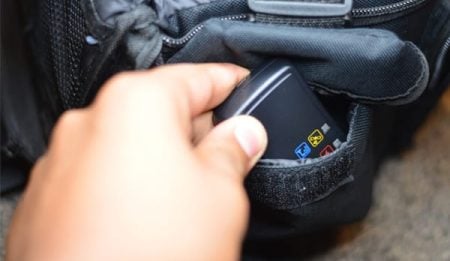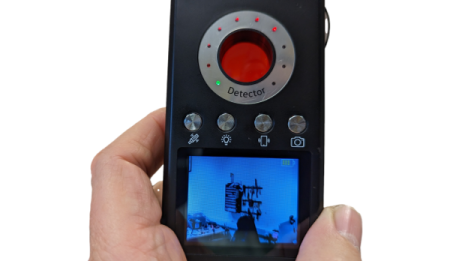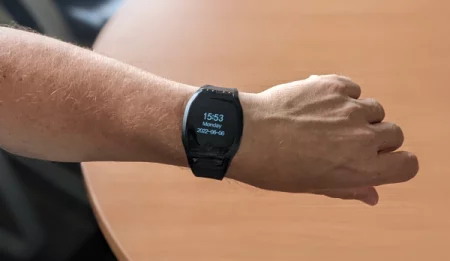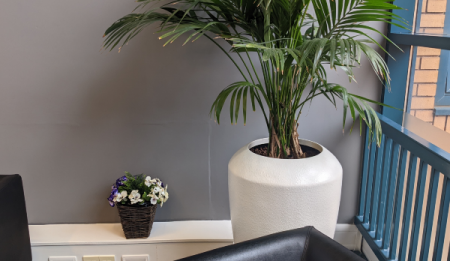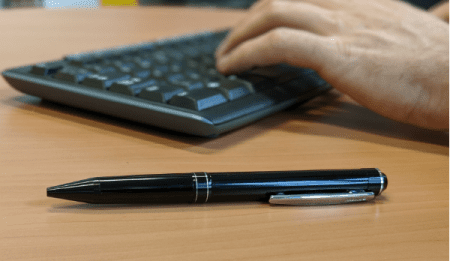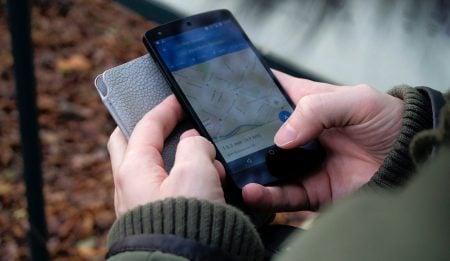Latest News
Everything You Need To Know About Spy Cameras
The demand for discreet monitoring solutions is higher now than ever before and covert spy cameras have become an integral part of this. From safeguarding your home and business to conducting private investigations, spy cameras offer unparalleled versatility and effectiveness. In this guide, we’ll go through everything you need to know about spy cameras, from […]
Read MoreRecording Devices: A Complete Guide
From personal security and protecting loved ones to professional investigations, recording devices have become indispensable tools for various purposes and nowadays play a significant role in capturing crucial audio and visual information discreetly. In this comprehensive guide, we will explore the following: What are recording devices? Top features of covert recording devices When might recording […]
Read MoreThe Best Asset Trackers From Spy Equipment UK
As we become increasingly security-conscious, the need for effective asset tracker solutions has never been greater. Whether it’s for personal or business use, keeping tabs on valuable assets is a priority for many. That’s where Spy Equipment UK, a leader in surveillance and tracking technology comes in. In this blog, we will explore our range […]
Read MoreHow To Find Hidden Surveillance Equipment
The thought of being monitored or recorded without consent has become a concern for many over recent years. Hidden surveillance equipment like spy cameras, listening devices, and tracking devices can be planted in homes, offices, or even carried unknowingly while on-the-go. This blog aims to guide you through identifying such devices and why Spy Equipment […]
Read MoreOur Top Spy Equipment Gadgets For 2024
In 2024, staying ahead in the spy game requires the latest and most advanced spy equipment gadgets. Look no further than Spy Equipment UK, the country’s leading spy shop. We offer a wide variety of surveillance solutions, including listening devices, spy cameras, tracking devices, phone and computer monitoring systems, as well as counter surveillance. Whatever […]
Read MoreThe Best Spy Equipment Gifts For Christmas
As the festive season approaches, finding the perfect gift for friends and family can be tricky. If you’re looking for an innovative, intriguing, and thoughtful gift idea, Spy Equipment UK offers a range of cutting-edge spy gadgets, such as spy cameras and listening devices, that are sure to spark curiosity and excitement. In this blog, […]
Read MoreBluetooth Trackers Vs GPS Trackers: Which One Is Best?
Deciding between a GPS tracker and a bluetooth tracker? As technology advances, the need for tracking our belongings, pets, and even loved ones has significantly grown. Two popular options for location tracking are bluetooth trackers like the Apple AirTag and more advanced GPS trackers. To help you decide which tracking device would best suit your […]
Read MoreHow To Tell Whether Your House Has Been Bugged
With the recent advances in spy camera technology and listening devices, concerns about privacy and security have become more pressing than ever before. Whether you’re an individual worried about personal privacy or a business owner protecting sensitive information, the possibility of your house or business being bugged is a real concern. In this article, we’ll […]
Read MoreThe Ultimate Guide To Counter Surveillance Devices
Counter surveillance and bug detection devices are valuable tools that play a vital role in maintaining privacy and security in a world that is becoming increasingly digitised. From safeguarding personal spaces to protecting sensitive business information, these devices offer numerous benefits that empower individuals and organisations to take control of their privacy. In this ultimate […]
Read MoreThe Top 5 Uses For A Hidden Spy Camera
At first glance, you may assume that hidden spy cameras are primarily for private investigators or police officers, but they actually have a number of applications, both at home or in the workplace. From monitoring a carer or babysitter, to keeping an eye on a partner whom you have suspicions about, spy cameras can help […]
Read MoreThe Best Spy Cameras For Your Home
Spy cameras are a valuable addition to any home security system. If you find yourself away from home a lot, or you often have people coming in and out whilst you’re at work, then it may be worth considering installing a hidden spy camera. It can then act as a remote pair of eyes to […]
Read MoreHow To Find Hidden Cameras In Your Airbnb
You’ve finally arrived at your long-awaited holiday destination and are excited to see what your quirky Airbnb rental looks like in-person, but when you arrive, something feels slightly off. How can you be sure the place you’re staying is completely private? If you’re worried about the presence of hidden cameras in your Airbnb rental, or […]
Read MoreSpy Equipment UK’s 2023 Coronation Offer
To celebrate the upcoming Coronation of King Charles III, the team at Spy Equipment UK have decided to offer customers 5% off the majority of our spy and surveillance products. This offer will apply across our tracking devices, listening devices, phone monitoring and spy camera range, so If you’re on the lookout for a brand-new, […]
Read MoreWhen Might You Need A Spy Pen?
Nowadays, it is much easier to capture valuable video evidence, or record important conversations whilst on-the-go, without raising any suspicion, primarily because you can find a hidden camera or voice recorder in almost anything. Spy Equipment UK’s extensive range of recording devices are only becoming more popular as they continue to take a variety of […]
Read MoreWhat Is A GSM Listening Device?
With GSM technology, the most inconspicuous household items can also function as a covert listening device. Whilst commonly used by law enforcement, intelligence services and private investigators across the globe, these listening devices can also be a great solution for anyone needing to gather valuable information quickly and discreetly. In this article, we will provide […]
Read MoreThe Ultimate Covert Gadget: How To Use A Spy Watch With Camera
Recent advancements in technology have enabled the development of a range of covert gadgets, from Spy Camera Sunglasses and Video/Voice Recording Spy Pens, to a variety of spy watches with undetectable hidden cameras. The use of these spy watches is becoming increasingly popular as an effective means for surveillance, not only amongst professionals, but also […]
Read MoreWhen Might You Need A Tracking Device?
As we go about our daily lives, we can’t help but worry about our loved ones and their whereabouts, especially those who are more vulnerable, like young children and the elderly. Thankfully, technology has advanced to the point where we can now use tracking devices to ease our concerns and help us to protect those […]
Read MoreWhat To Look For When Buying A GPS Tracker
If you’re searching the web for a reliable GPS tracker, but are not sure what factors you should be considering before purchasing, then you’ve come to the right place. The team at Spy Equipment UK are well versed in all things tracking devices, as well as having a wide range of products to suit your […]
Read MoreOur Top Hidden Audio Recorders
Hidden audio recorders have been around for many years, with most intelligence experts favouring this method of surveillance to gather higher quality evidential results. Audio recording technology is advancing rapidly, with covert listening and recording devices coming in many surreptitious forms, such as a spy pen digital recorder or even a cuddly toy voice activated […]
Read MoreWhy Is Asset Tracking Important For Your Business?
As a business owner, you want to make sure that you have complete control over your assets. Asset trackers have become a big part of the day-to-day running of commercial businesses in the last decade, with senior figures looking to increase security measures across departments. In this article we will discuss how asset tracking can […]
Read More

